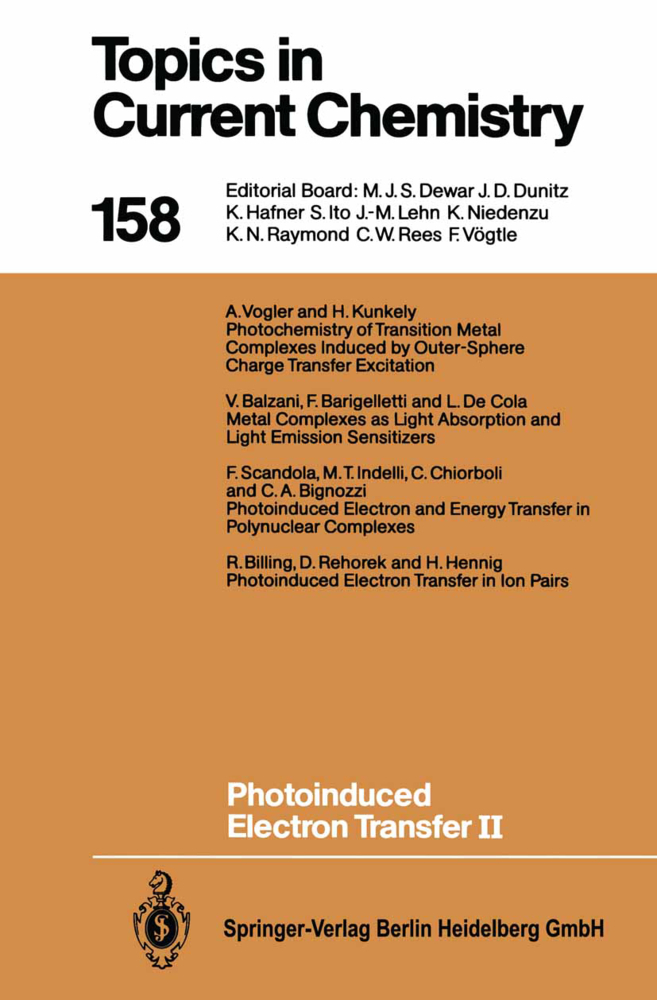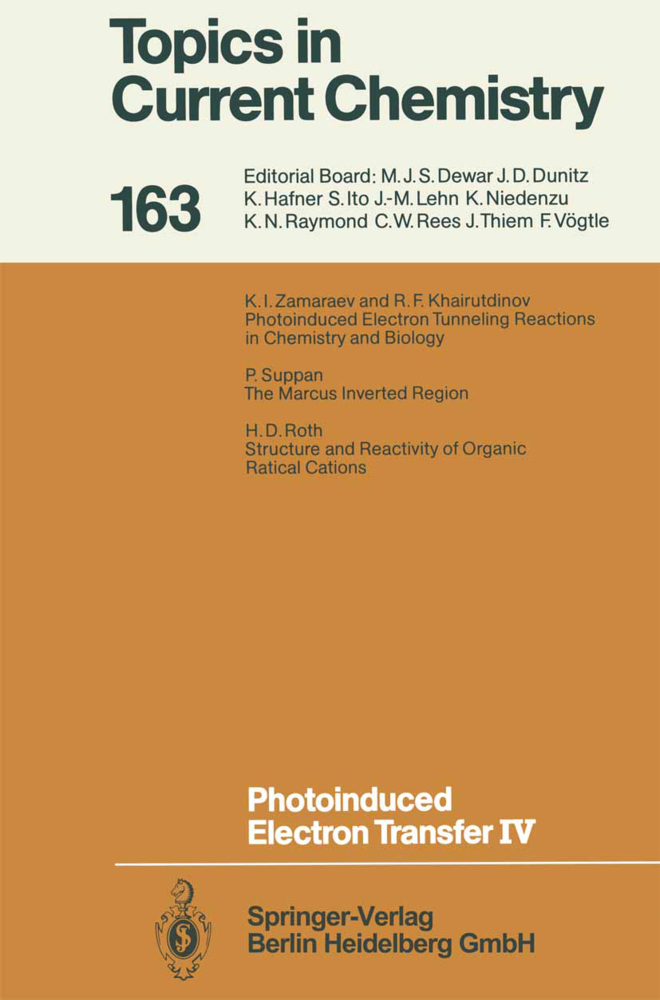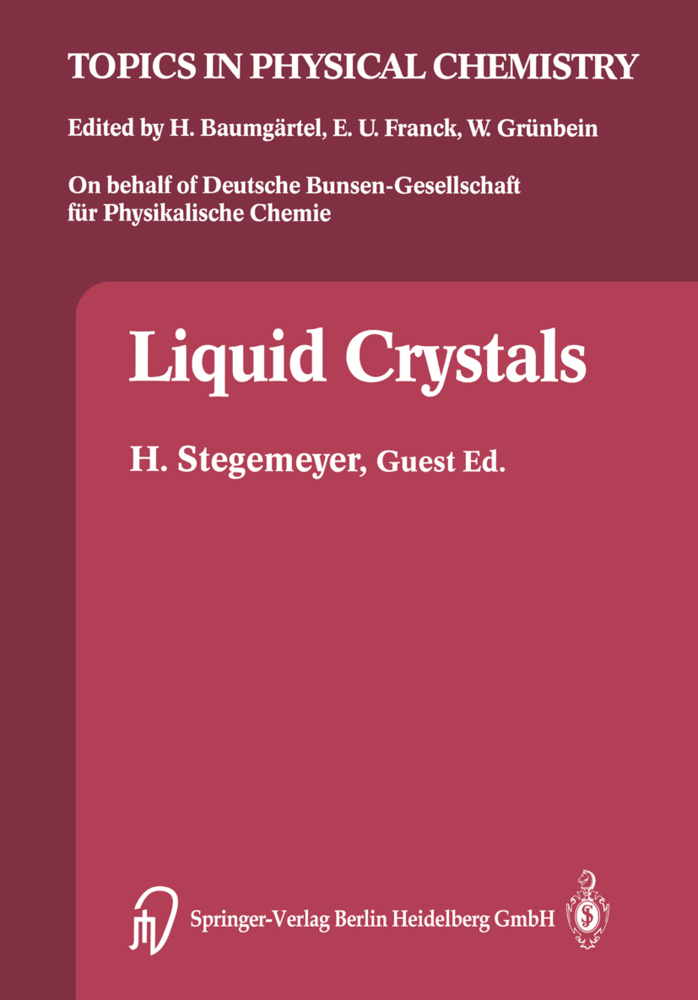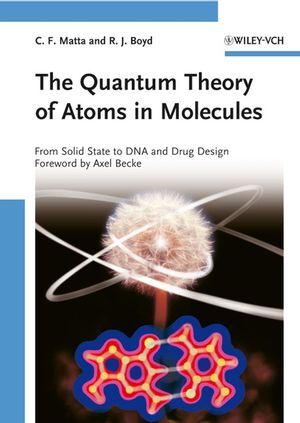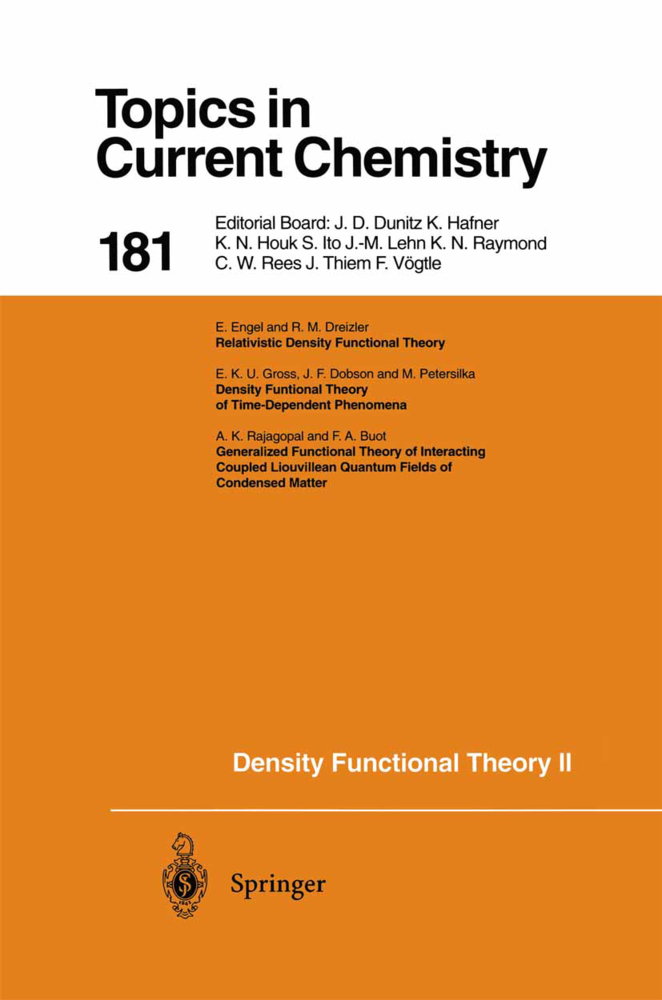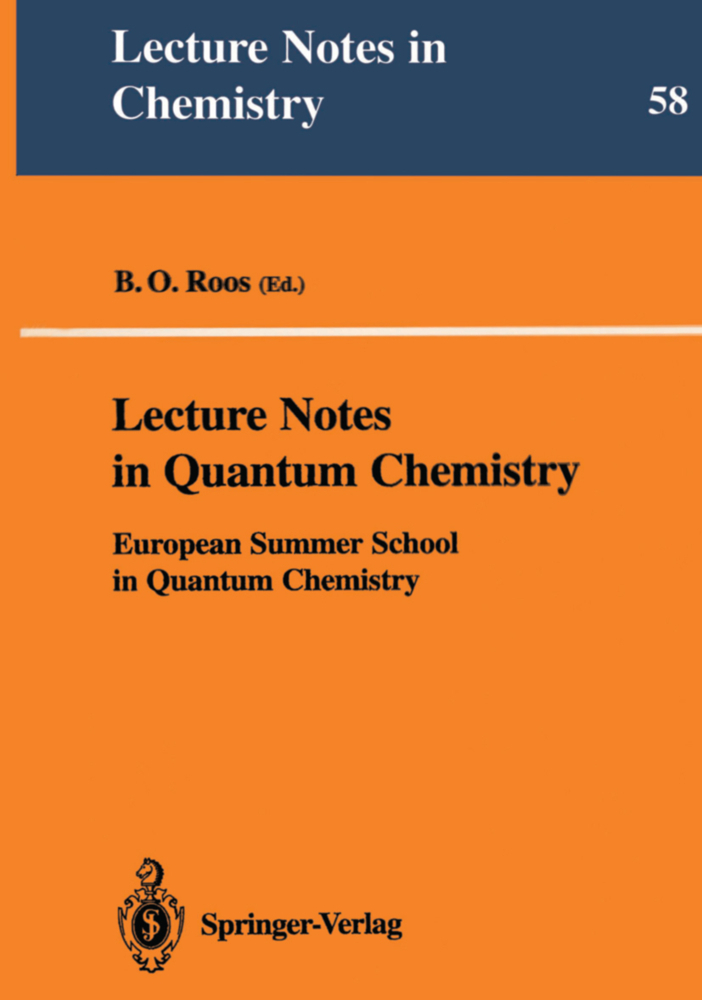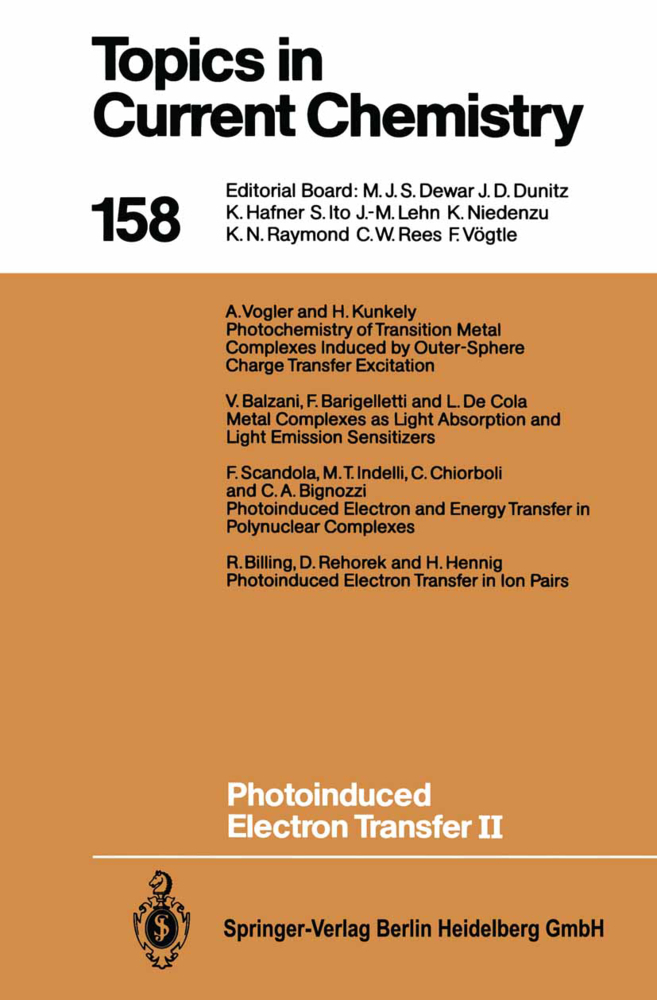Aspects of Many-Body Effects in Molecules and Extended Systems
Proceedings of the Workshop-Cum-Symposium Held in Calcutta, February 1-10, 1988
Aspects of Many-Body Effects in Molecules and Extended Systems
Proceedings of the Workshop-Cum-Symposium Held in Calcutta, February 1-10, 1988
This volume features invited lectures presented in the workshop-cum-symposium on aspects of many-body effects in molecules and extended systems, Calcutta, February 1 - 10, 1988. The organizers invited leading experts to present recent developments of many-body methods as applied to molecules and condensed systems. The panorama portrayed is quite broad, but by no means exhaustive. The emphasis is undoubtedly on a "molecular point of view".
Quantum Chemistry in Fock Space
Size Extensivity Correction for CI Energies Based on Complete Active Space Reverence Functions
II. Many-Body Perturbation Theory and Coupled-Cluster Theory of Atomic and Molecular Electronic Structure
Dynamic Variational Principles Extended Coupled Cluster Techniques
SAC-CI Calculations of the Excited and Ionized States of Conjugated Molecules
Atomic and Molecular Application of Effective Hamiltonian Formalism in Complete and Incomplete Model Spaces
Applications of Multi-Reference Coupled-Cluster Theory
Applications of the Open-Shell Coupled-Cluster Method
An Explicitly Connected MBPT for Incomplete Model Space
III. Propagators in Bound States and Resonances
Propagators for Molecular Electronic Spectra
Transition Moments in RPA-like Approximations
Application of One Electron Propagator Method in the Treatment of Resonances
IV. Condensed Matter and Related Topics
Quantum Fluid Dynamics: An Extended Coupled-Cluster Treatment
Quasiparticles in Extended Systems A Coupled-Cluster Approach
Electronic Structure and Spectra of Polyenes
Proton Transfer in Water and Ice: Solitonic Models for Structural Defects in the Hydrogen-Bonded Network
V. Many-Body Methods in Dynamical Processes
On the Development of Time Dependent Cluster Expansion Techniques for Molecular Dynamics
Electrochemical Electron Transfer: Accounting for Non-Adiabaticity Using a Bosonised Hamiltonian
VI. Relativistic Methods with Applications
Generalization of Kato's Cusp Conditions to the Relativistic Case
Relativistic and Non-Relativistic Many-Body Procedure, Applied to Atomic Systems.-Relativistic Equations of Motion Method
Relativistic Many-Body Theory of Electric Dipole Moment of Atoms due to Parity and Time-Reversal Violation
VII. Group-Theoretic Techniques
Spinor Basis in Electron Correlation Studies
On the Unitary Group and Associated Operators
VIII. Few-Body Methods, Large-N Expansion and Other Mathematical Topics
Hyperspherical Harmonics Methods for Few-Many-Body Problems
Large-N Expansions
Application of Catastrophe Theory to Molecules
IX. Densities and Density-Functionals
Modern Developments in the Energy Density Functional Theory of Many-Electron Systems
Interconnections between Electron Densities in Position and Momentum Spaces
Aspects of Density Functional Approach to Many-Electron Systems
List of Participants.
I. Separability in Many-Electron Problem: Size Extensivity and Size-Consistency
Separability Problem in General Many-Electron SystemsQuantum Chemistry in Fock Space
Size Extensivity Correction for CI Energies Based on Complete Active Space Reverence Functions
II. Many-Body Perturbation Theory and Coupled-Cluster Theory of Atomic and Molecular Electronic Structure
Dynamic Variational Principles Extended Coupled Cluster Techniques
SAC-CI Calculations of the Excited and Ionized States of Conjugated Molecules
Atomic and Molecular Application of Effective Hamiltonian Formalism in Complete and Incomplete Model Spaces
Applications of Multi-Reference Coupled-Cluster Theory
Applications of the Open-Shell Coupled-Cluster Method
An Explicitly Connected MBPT for Incomplete Model Space
III. Propagators in Bound States and Resonances
Propagators for Molecular Electronic Spectra
Transition Moments in RPA-like Approximations
Application of One Electron Propagator Method in the Treatment of Resonances
IV. Condensed Matter and Related Topics
Quantum Fluid Dynamics: An Extended Coupled-Cluster Treatment
Quasiparticles in Extended Systems A Coupled-Cluster Approach
Electronic Structure and Spectra of Polyenes
Proton Transfer in Water and Ice: Solitonic Models for Structural Defects in the Hydrogen-Bonded Network
V. Many-Body Methods in Dynamical Processes
On the Development of Time Dependent Cluster Expansion Techniques for Molecular Dynamics
Electrochemical Electron Transfer: Accounting for Non-Adiabaticity Using a Bosonised Hamiltonian
VI. Relativistic Methods with Applications
Generalization of Kato's Cusp Conditions to the Relativistic Case
Relativistic and Non-Relativistic Many-Body Procedure, Applied to Atomic Systems.-Relativistic Equations of Motion Method
Relativistic Many-Body Theory of Electric Dipole Moment of Atoms due to Parity and Time-Reversal Violation
VII. Group-Theoretic Techniques
Spinor Basis in Electron Correlation Studies
On the Unitary Group and Associated Operators
VIII. Few-Body Methods, Large-N Expansion and Other Mathematical Topics
Hyperspherical Harmonics Methods for Few-Many-Body Problems
Large-N Expansions
Application of Catastrophe Theory to Molecules
IX. Densities and Density-Functionals
Modern Developments in the Energy Density Functional Theory of Many-Electron Systems
Interconnections between Electron Densities in Position and Momentum Spaces
Aspects of Density Functional Approach to Many-Electron Systems
List of Participants.
Mukherjee, Debashis
| ISBN | 978-3-540-50765-9 |
|---|---|
| Artikelnummer | 9783540507659 |
| Medientyp | Buch |
| Copyrightjahr | 1989 |
| Verlag | Springer, Berlin |
| Umfang | VIII, 565 Seiten |
| Abbildungen | VIII, 565 p. 2 illus. |
| Sprache | Englisch |

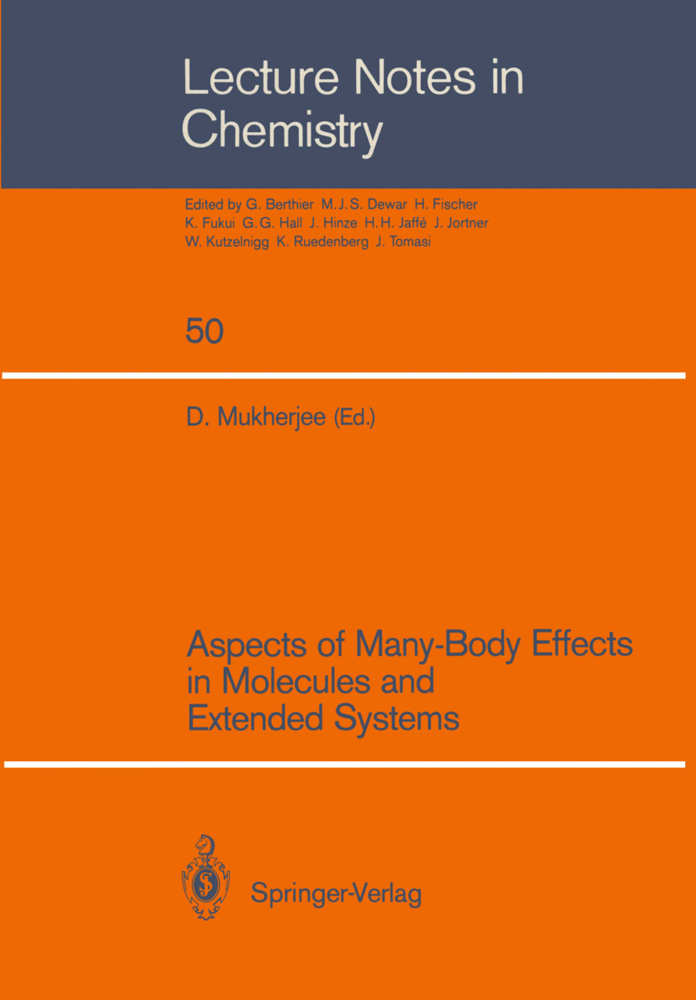
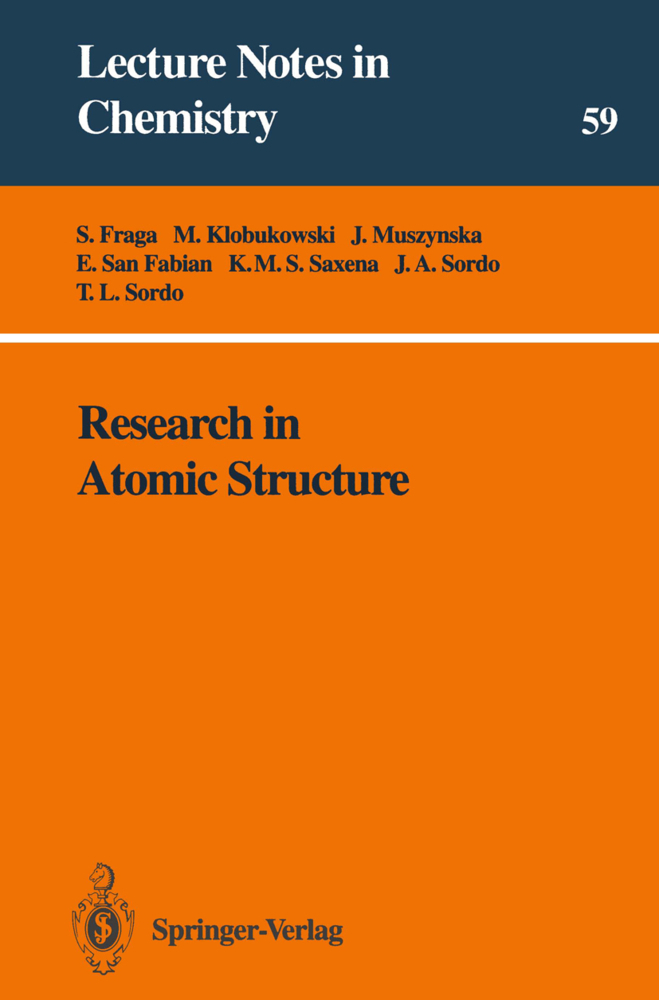
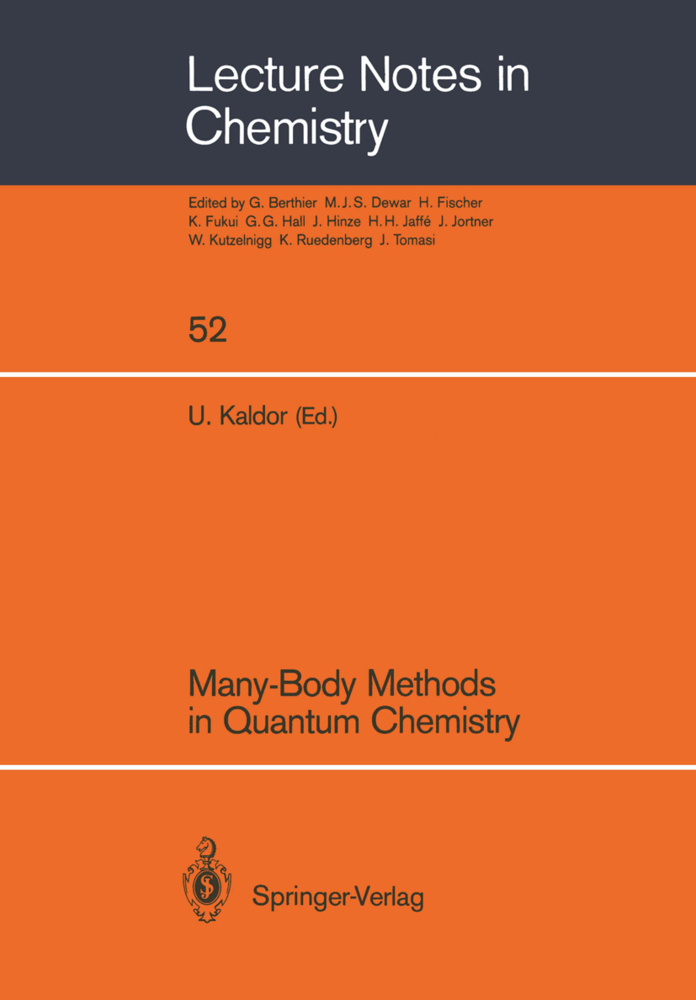
![[Set Fundamentals of Material Science, Vol 1+2] [Set Fundamentals of Material Science, Vol 1+2]](https://www.deutscher-apotheker-verlag.de/media/e0/17/50/1686100619/8463100100001A.jpg)
